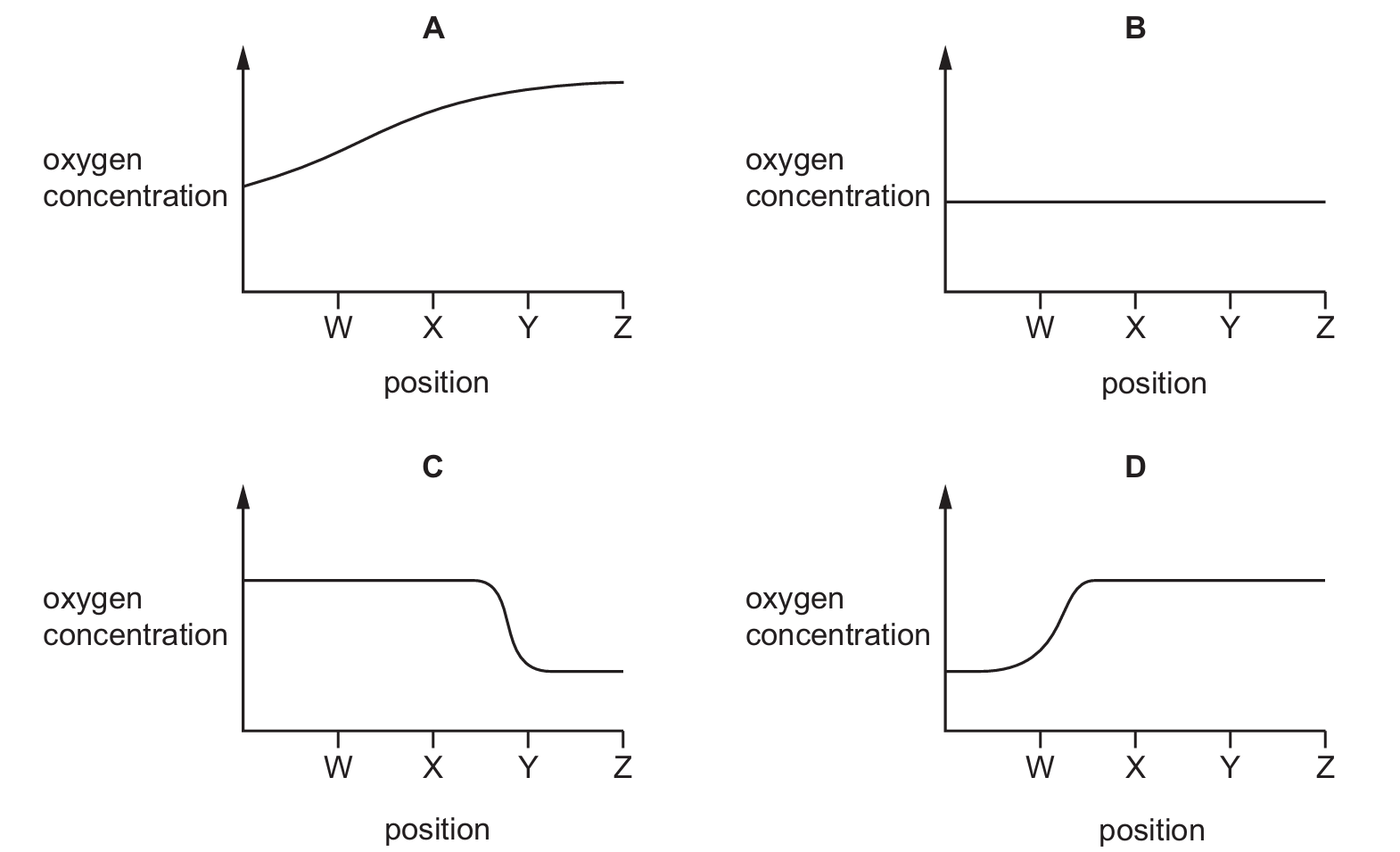Question
The diagram shows four positions on a river where water samples were taken.

Which graph shows oxygen concentrations in the river?

▶️ Answer/Explanation
This question typically refers to the effect of organic pollution (sewage) entering a river. When organic waste is dumped into a river, aerobic bacteria begin to break it down. This process uses up a significant amount of dissolved oxygen, causing the concentration to drop sharply. As the water moves downstream and the waste is fully decomposed, the oxygen levels gradually recover through aeration. Graph $C$ correctly illustrates this “oxygen sag curve,” showing a sudden decrease in oxygen levels at position $Y$ followed by a lower equilibrium or recovery phase.
✅ Answer: (C)
Question
Some species of aquatic insects are able to survive at different ranges of $pH$.
The diagram shows the $pH$ ranges in which four different species are able to survive.
Which species is unable to live in an acidic environment?

▶️ Answer/Explanation
✅ Answer: (A)
Question
Which substance is a source of water pollution that contains pathogens?
(B) chlorophyll
(C) methane
(D) untreated sewage
▶️ Answer/Explanation
✅ Answer: (D)
